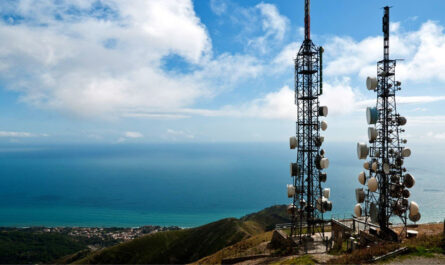Need for a Coordinated Effort in Tracking Space Debris
However, tracking space objects and maintaining a detailed catalogue is an immensely difficult task due to the vastness of space and complexity of orbital dynamics. Individual countries and private entities have made progress, but a coordinated global approach is still needed to fully realize effective Space Situational Awareness (SSA).
Existing National Efforts and Their Limitations
Several nations already operate orbital surveillance networks with varying capabilities. The U.S. Space Surveillance Network consists of over 30 radar and optical sensor sites worldwide providing observational data to maintain the U.S. Space Command catalog covering over 27,000 tracked objects. Global Space Situational Awareness (SSA)Similarly, Russia, China, and Europe have national SSA programs in place to support their space assets, but coverage is limited without international cooperation.
Commercial SSA services are also available from companies like U.S.-based ExoAnalytic Solutions and Spire Global. However, the civilian sensors are less powerful than national defense networks and costs are higher for individual operators. Aggregated data is also limited due to proprietary and security concerns between service providers.
While substantial tracking data exists, it is fragmented across different networks and standards. Critical observational gaps remain, especially for smaller debris that can still damage spacecraft upon impact. Regions like South America and Africa have little indigenous capability, relying primarily on observations from U.S. sites thousands of miles away.
Importance of Data Sharing and Integration
To fully realize a transparent and reliable global SSA capability, greater international cooperation is essential. Combined observations from geographically dispersed sites could far surpass any individual network in coverage and accuracy. Data sharing allows disparate catalogs to be integrated into a unified international reference, eliminating duplicative effort.
Through the United Nations International Committee on Space Debris Coordination, efforts are underway to define common interface protocols and rules of the road for SSA data exchanges. However, intelligence and security factors pose challenges for unhindered sharing by major spacefaring nations. New mechanisms are still needed to gain acceptance and address access restrictions.
While whole catalog transfers raise valid security vetting issues, targeted sharing for specific conjunction assessments or tracking coverage gaps would still be extremely valuable. Commercial providers could also play an important role by aggregating proprietary data through consortium arrangements while balancing transparency with proprietary advantage.
Promoting Regional Participation
Building indigenous SSA capabilities across underdeveloped regions remains key to filling critical gaps in a truly global network. Supporting regional training and academic programs builds domestic expertise and understanding of shared challenges. Initiatives sponsored by space agencies help develop new ground stations and data analysis centers focused on regional needs.
South Africa’s recent partnership with Germany’s Fraunhofer Institute resulted in the Space Situational Awareness (SSA) Programme establishing sensor stations and predictive services for African users. South Korea, India, and other emerging powers also have national interests driving the development of independent yet cooperative SSA networks. With collaborative roadmaps and technology sharing, emerging regional players can become valuable contributors rather than passive recipients of SSA benefits.
Establishing Common Community Resources
While significant progress has been made through bilateral and multilateral ties, unified common resources open to all remain lacking. An open-access data repository for calibrated and curated observations would tremendously increase the science yield from disparate networks. Common orbital models refined through peer review assist global conjunction analysis and long-term prediction services.
Similar to how asteroid tracking databases support worldwide impact risk assessments, an open Space Traffic Management data pool could enable independent vetting and analysis. Commercial companies could also tap into aggregated reference data to enrich their higher value consumable services. With reasonable safeguards, common infrastructure strengthens global partnership beyond point-to-point connections alone.
Effective Space Situational Awareness (SSA) underpins all space activities and is fundamental to long term sustainability of the space environment. While military and commercial interests will continue driving national capabilities, coordinating limited observation resources globally offers substantial mutual benefit through improved knowledge and timelier warnings. Increased data sharing, regional participation, and establishment of open resources can address gaps through collaborative rather than competing approaches. Continued progress on these coordination fronts ensures reliable and responsible use of space for all humanity.
*Note:
1.Source: Coherent Market Insights, Public sources, Desk research
2.We have leveraged AI tools to mine information and compile it




